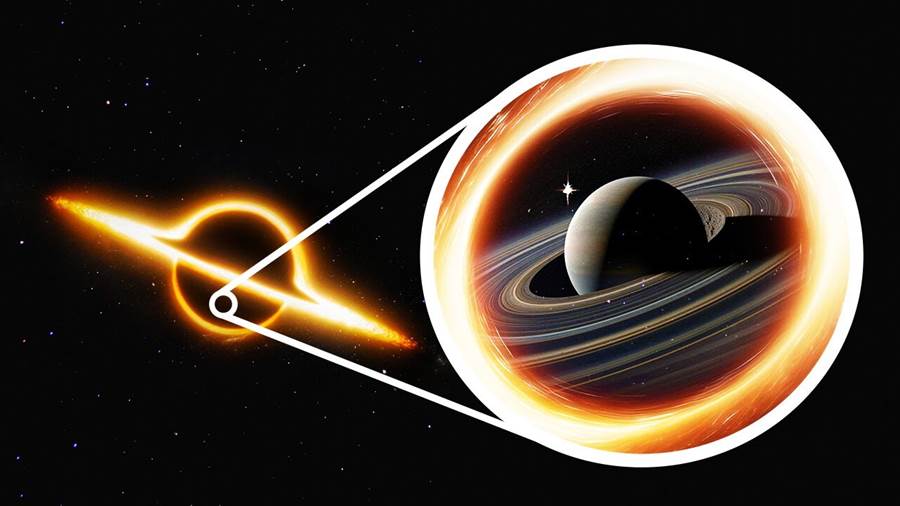
This article delves into the surprising discoveries made about black holes, contradicting previous assumptions. Contrary to prior beliefs, recent findings have revealed that inside a black hole may not be the void or singularity that was once believed to exist.
Black holes, which are formed by the collapse of massive stars, have always been considered as regions of space where gravitational forces are incredibly powerful, leading to the creation of a space-time singularity. It was believed that everything that enters a black hole would ultimately be crushed into an infinitely small and dense point, known as a singularity, making it impossible for anything to escape its grasp.

However, modern theories, such as string theory and quantum mechanics, are now challenging these traditional notions. These theories suggest that black holes might not have a singularity at their core. Instead, they propose the presence of a "firewall," a region within the black hole where matter and energy is intensely compressed, but not reduced to a singularity.
The idea of a firewall inside a black hole raises fascinating questions about the nature of space-time and our understanding of the universe.
While further research is required to confirm these theories, the notion that black holes may not be the cosmic vacuums we believed them to be has sparked tremendous excitement among scientists. These groundbreaking findings have the potential to reshape our fundamental understanding of the universe and our place within it.








